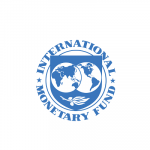Islamabad: The World Bank (WB) has strongly criticized Pakistan’s tax system, calling it “unfair” and “absurd,” and urged the government to bring property into the tax net while ensuring its accurate documentation and taxation. The international financial institution emphasized that expanding the tax base, particularly through the inclusion of property income, is essential to reduce the tax burden on the salaried class.
Speaking at a session titled “Charting Pakistan’s Fiscal Trajectory: Enhancing Transparency & Trust” at the Pakistan Institute of Development Economics (PIDE) conference, WB’s lead country economist Tobias Haque stated that the country’s current tax system is inequitable and unsustainable. Haque expressed concerns over the fact that only 5 million people file tax returns in a nation of 240 million people, with a significant portion of government revenue being generated through the regressive General Sales Tax (GST).
Read: Govt eyes tax relief for salaried individuals after record collections
“The system is absurd. With only 5 million return filers, we cannot expect the system to remain sustainable,” Haque said, adding that broadening the tax base by including all sources of income, including property, is critical. He praised the imposition of the Agriculture Income Tax (AIT) by provinces but underscored that accurate documentation and taxation of the property sector are now necessary for the country’s fiscal health.
Haque also pointed out the need for Pakistan to modernize its tax system by fully digitizing processes and streamlining the tax codes. A more inclusive system, he said, would help ease the burden on the salaried class, who currently bear the brunt of the country’s inefficient tax system.
Dr. Ali Salman, Executive Director of the Policy Research Institute of Market Economy (PRIME), echoed Haque’s sentiments, calling for a reduction in the number of withholding taxes (WHTs), of which 45 out of 88 currently generate less than Rs1 billion annually. He argued that simplification of the system could help increase tax compliance and make the tax structure more transparent.
Read: Relief for real estate: Govt to abolish 3% FED on property sales
In addition, PIDE Vice Chancellor Nadeem Javaid raised concerns about Pakistan’s public expenditure, pointing out that approximately 40% of development spending is siphoned off due to commissions, with bills requiring a 5-7% kickback to the Accountant General Pakistan Revenues (AGPR). He called for an overhaul of Pakistan’s fiscal structure to ensure that development funds are used more effectively.
The panelists at the PIDE session agreed that digital transformation, system integration, and real-time data access are key to modernizing Pakistan’s tax framework. However, they noted that political resistance, outdated legal frameworks, and institutional disconnects have prevented meaningful progress in this area.
A recurring theme throughout the discussions was the erosion of public trust in the tax system. Experts pointed to inconsistent policies, a lack of transparency, and a skewed tax burden as the main factors contributing to public disillusionment. They stressed the need for clear tax codes, improved infrastructure, and performance-based incentives to restore taxpayer confidence and ensure a more equitable tax system.
Read: Islamabad: Discover prime real estate deals this Saturday with Zameen.com
As Pakistan continues to face fiscal challenges, the World Bank’s recommendations highlight the urgent need for comprehensive tax reform to ensure long-term economic stability and fairness.








